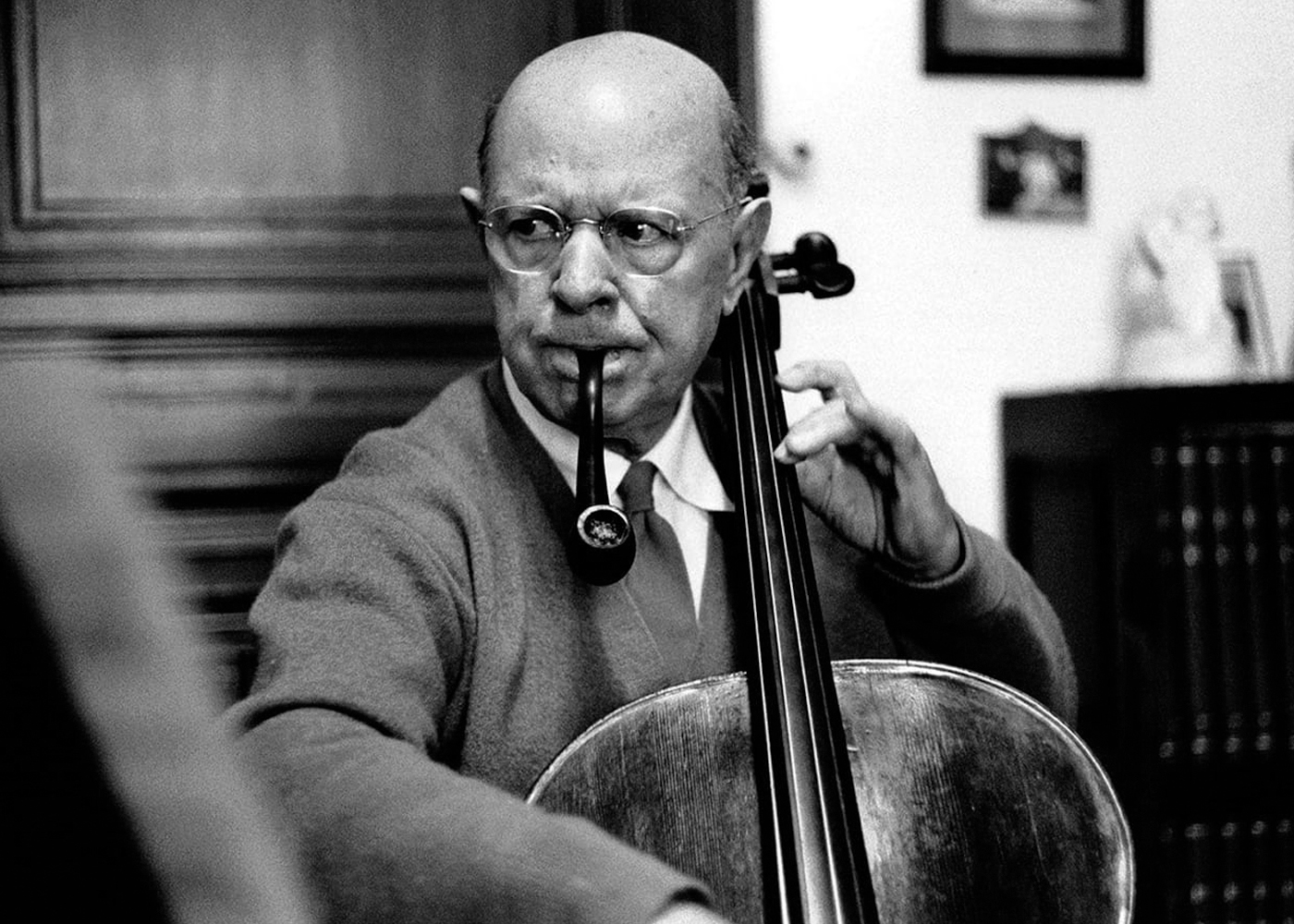
Pau Casals: the voice of the cello and a symbol of peace
Pau Casals (1876–1973) is known as one of the greatest cellists of all time and a profound advocate for peace and human rights. Born in the small Catalan town of El Vendrell, his extraordinary talent, combined with his deep commitment to artistic excellence and moral integrity, made him a towering figure in the history of the cello.
From an early age, Pau Casals demonstrated an exceptional musical gift. His father, a musician and organist, and his mother, born in Puerto Rico, instilled in him the principles of justice and peace. By the age of 11, Casals discovered his life’s calling when he first heard the cello. This instrument, with its rich and human-like timbre, became his lifelong companion.
Casals’ breakthrough came when he rediscovered Johann Sebastian Bach’s Six Cello Suites, a collection that had largely been neglected at the time. His meticulous study and interpretation of these works brought them to the forefront of the cello repertoire, transforming them into cornerstones of classical music. Casals’ recordings of the suites, made between 1936 and 1939, remain iconic. For cellists, these performances are not just interpretations; they are lessons in artistry and respect for the music.
Beyond his contributions as a performer, Pau Casals was a composer whose works reflected his Catalan roots and profound connection to his homeland. One of his most enduring pieces is his arrangement of the traditional Catalan song El Cant dels Ocells (The Song of the Birds). This hauntingly beautiful melody, symbolizing peace and freedom, became his personal anthem. Casals performed it at the end of every concert during his years of exile, turning it into a universal cry for justice and a poignant reminder of his unbreakable commitment to human dignity.
Casals’ life was deeply affected by the political instability of the 20th century. A firm opponent of Franco’s regime in Spain, he chose voluntary exile in 1939, refusing to return to his homeland while it remained under dictatorship. Despite the challenges of exile, Casals continued to use his music as a platform for advocating peace and unity. His famous performance of El Cant dels Ocells at the United Nations in 1971, where he was awarded the U.N. Peace Medal, stands as a testament to his belief in the transformative power of music.
As we listen to Pau Casals’ cello or as we perform his beloved El Cant dels Ocells, we are reminded of Pau Casals’ enduring message: that music, at its highest level, is a force for good, a voice for the voiceless. Through his life and work, Casals not only delighted us with his music, but how to stand for what you believe.

